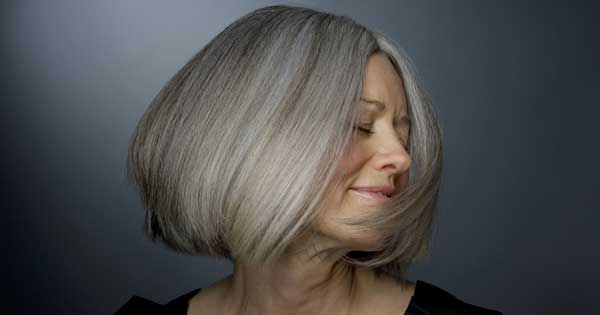We all know the Golden Rule when it comes to growing your hair: regular trims to help ensure your mane stays healthy and strong – along with using suitable heat-protective products, to keep breakages, split-ends and frizzy, frazzled tresses at bay. Regular protein and deep-conditioning treatments are a good idea too.
But aside from that, is it all down to our genes, or luck of the draw, as to how quickly our hair grows? Our general health may play a part too, and nutritionists Shona Wilkinson and Cassandra Barns, believe what we put into our bodies might make a difference as well.
Here, they highlight seven key nutritional ingredients for growing long, healthy hair.
Selenium
“Not only can selenium benefit skin during healing, but it also helps keep hair nourished,” says Wilkinson. “Brazil nuts and wheat germ are a great source of selenium. Other foods rich in selenium are whole grains (barley, wheat, rye, buckwheat, oats and brown rice), fish, seafood and lean meats, sunflower seeds and other nuts, such as pecans and almonds. Also, a good quality supplement can be a great way to improve the condition of your hair.”
Zinc
“Low zinc levels in your system can lead to the deterioration of the protein structure that makes up the hair follicle. This can in turn cause hair shedding and hair loss,” says Barns. “Oysters, pumpkin seeds, ginger root, pecans, Brazil nuts, oats, almonds, turnips and garlic are all great sources of zinc. You can also try taking a supplement, such as Natures Plus Zinc Lozenges.”
Iron
“If you have low iron levels from your diet, you can develop an iron deficiency, which can lead to thinning hair,” says Wilkinson. “Essential sources of iron are pumpkin and squash seeds, liver, millet, almonds, prunes, Brazil nuts, beet greens, Swiss chard, dates, lentils, brown rice and broccoli. These foods really do help to keep your hair healthy! Alternatively, you can replenish iron deficiency by taking a supplement, which will assist in keeping your hair strong and healthy.”
Amino acids
“Hair is largely made up of keratin, which is a protein containing the amino acids cysteine, lysine, arginine and methionine,” notes Wilkinson. “Of these, lysine and methionine are essential, meaning we must get them from our diet, as we cannot ‘make’ them ourselves.” Lysine can be found in brewer’s yeast, chicken, dairy, fish, lamb and parmesan; methionine in beans, beef, dairy products, eggs, fish, garlic, liver, onions and sardines; cysteine is also in beans, beef, brewer’s yeast, chicken, cottage cheese, eggs, fish, garlic and liver, while sources of arginine include almonds, beans, carob (a bean in the pea family), cashews, chocolate, dairy products, garlic and peanuts.
Biotin
“Not only can biotin improve the health of skin, it’s also a great way to keep hair strong and revitalised. Biotin contributes to the maintenance of normal hair, as it plays a role in the production of keratin,” says Barns. “You can increase your biotin intake by eating brown rice and legumes, such as soybeans and lentils. If you have the ‘midday munchies’, perfect biotin-fuelled snacks are nuts and seeds, such as walnuts, pecans, almonds and sunflower seeds. You could also kick-start your day with porridge made with whole oats and sprinkled with nuts and seeds to boost your biotin intake, and get that gorgeous and glossy hair growing.”
Vitamin A
“Vitamin A is a commonly known antioxidant and is usually associated with promoting eye health, but this is also a great nutrient for healthy hair. Vitamin A is commonly found in cod liver oil, krill oil, carrots, spinach and peaches,” says Wilkinson. “However, you must ensure to not go over board on how much vitamin A you have, as it can in fact contribute to hair loss if taken too much. It’s all about getting the balance! The maximum daily amount you should consume is 25,000 IU.”
Probiotics
“Regular intake of probiotics can be a great way in helping your hair grow, as each hair is surrounded by nourishing blood vessels, and probiotics attack pathogens (agents of disease) to keep your blood healthy. Healthy blood results in nourished hair and can promote hair growth. Kefir, pickles, sauerkraut or miso are all great sources of probotics,” says Wilkinson.
